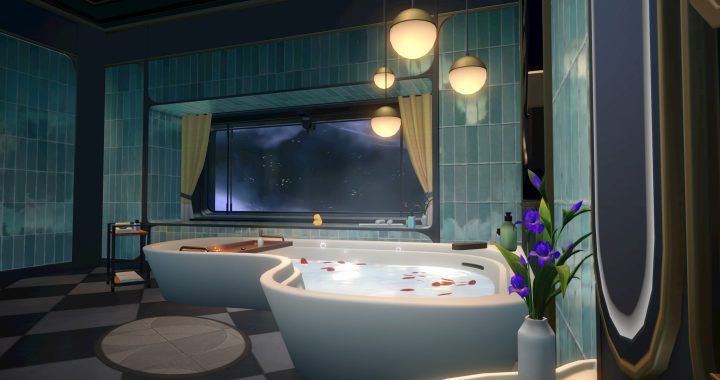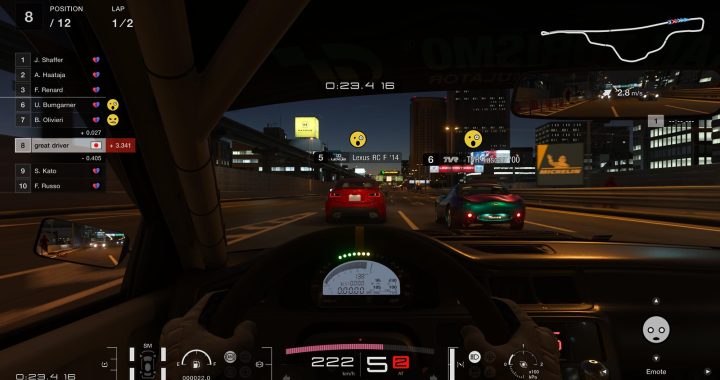Realme 6i Review: A Solid Performer | News and Reviews
After quite a delay, the Realme 6i has finally arrived in the Philippines. As a direct successor of the Realme 5i, the 6i comes with a few enhancements from its predecessor such as a more powerful chipset, higher pixel count on its main camera, and a revamped design.
Realme 6i
| Chipset | MediaTek Helio G80 |
| Screen | 6.5-inch LTPS IPS Dewdrop, 1600 x 720, Gorilla Glass 3 |
| RAM | 3GB/4GB |
| OS | Android 10 with Realme UI |
| Rear Camera | 48MP f/1.8 Main, 8MP f/2.25 Ultrawide, 2MP f/2.4 Macro, 2MP f/2.4 Portrait, LED Flash, Dual Pixel AF, Chroma Boost, EIS |
| Front Camera | 16MP f/2.0 |
| Storage | 64GB/128GB |
| Network | Dual-SIM, 4G LTE |
| Connectivity | Dual-band WiFi 802.11ac, Bluetooth 5.0, USB Type-C, GPS |
| Battery | 5,000mAh, 18W Charging |
| Others | Fingerprint Scanner |
| Colors | White Milk, Green Tea |
Unboxing
The Realme 6i is encased in a yellow box traditional of all Realme smartphones thus far. Like its contemporaries, it only comes with the bare necessities such as a SIM tray ejector, documentation, a silicone case, a USB Type-C cable, and a 9V/2A wall adapter. There’s no audio gear to be found here presumably to lower costs for the final price of the smartphone.
Design and Features
The front of the 6i is as basic as most smartphones in the market. A 6.5-inch LTPS IPS 1600 x 720 with Corning Gorilla Glass 3 and an additional plastic screen protector. Nestled on its tiny notch is its 16MP f/2.0 front-facing camera.
The display, although only 1600 x 720, is able to display relatively sharp images despite its size. Colors are fairly accurate, however, there are times that the display might seem washed out for our liking especially when viewing some of the photos we took. Brightness produced by the screen is strong enough to be used without problems even against sunlight.
It seems that Realme has a habit of radically redesigning the aesthetics of their smartphones every generation. With the Realme 6i, the brand is not using their traditional diamond-cut design nor the Sunrise pattern of its predecessor. Instead, the 6i now sports a design by Naoto Fukasawa who is also the designer for Realme’s X series Master Edition smartphones.
This new design implementation of the 6i allows it to separate itself from other smartphones in the market. Instead of a fully matte or shiny finish, the smartphone take advantage of both worlds. A matte coating encompasses the body of the device allowing for better handling while distinct reflective lines run down the length of the smartphone’s back. Seeing the complete design is a bit harder to see on the White Milk variant especially in bright conditions.
Resting on the top-right portion of the rear is the 6i’s four cameras. The main camera receives a significant pixel count increase to 48MP f/1.8, which makes its predecessor’s 12MP f/1.8 shooter comparatively measly. The other camera modules, however, largely stays the same with its 8MP f/2.25 ultrawide, 2MP f/2.4 macro lens, and 2MP f/2.4 portrait shooter. Just beside the camera bump is the smartphone’s LED flash as well as a physical fingerprint scanner.
The design of the Realme 6i might have changed but the position of its buttons and other amenities remain the same. The right-hand side houses the power button while the left-hand side comes with its volume rocker and triple-cut SIM tray. Thankfully, Realme has moved on from the archaic MicroUSB port and has adopted the USB Type-C standard on the 6i.
The Realme 6i is primarily made out of plastic though its rear design does not make it obvious in a quick glance. Upon handling the smartphone, however, its plastic roots become apparent due to some flex on the chassis. This is especially evident in the metal-like trim on the edges of the smartphone. It’s not too bad given that the 6i is placed in a budget-oriented category in the market.
User Interface
Even though the Realme 6i officially ships with Android 10 with Realme UI, there are some callbacks from its ColorOS roots. Ever-present options such as multi-window support, drag-down notification bar, gesture controls, and the option to switch from a traditional app drawer or put everything on the home screen.
Icons are also largely customizable in the Realme UI. Depending on your preference, you can round the corners of the icons or stick to a traditional square look. You can also adjust the foreground and overall size of the icons with an easy slider on the settings menu. The Smart Sidebar also makes a return allowing you to quickly access your chosen apps by swiping inward from the white bar at the side.
Camera
As we have mentioned from our first impressions, the Realme 6i has most of the camera modes that you need to fully utilize its quad cameras. Opening the camera app allows you access to Photo, Video, Night Mode, Portrait, 48MP mode, HDR, and Chroma Boost. Other modes such as Ultra Macro, Slow Motion, Time Lapse, Panorama, and Expert can be accessed by choosing the “more” option.
By default, the 48MP f/1.8 main camera saves photos at a reduced 12MP. If you want the full experience you’re going to have to choose the 48MP mode. Taking snaps with the main lens produces well-detailed pictures with good colors and saturation. Turning on Chroma Boost will increase the saturation of the photos making colors a bit more aggressive without overdoing it.
Its 8MP f/2.25 ultrawide camera lacks the details captured by the primary camera but does delivery punchy colors without significant distortion at the sides. The 2MP f/2.4 macro lens, on the other hand, takes less-than-stellar photos lacking detail and saturation.
Performance, Benchmarks and Battery Life
Powering the Realme 6i is the Helio G80 chipset courtesy of MediaTek. You can choose from two different variants: 3GB/64GB and 4GB/128GB. The unit we got for review is the higher 4GB/128GB allowing us a bit more room in terms of multitasking due to the higher amount of RAM.
Using the Realme 6i with our daily tasks which include writing, watching YouTube, browsing social media, and replying to emails proved easy. The Helio G80 is also able to pump out steady framerates on Call of Duty: Mobile at medium settings.
Running benchmarks on the 6i also produced decent numbers for a smartphone in its price point. Results include 1,332 in 3DMark Sling Shot Extreme – OpenGL, 8819 in PCMark Work 2.0, and 204,167 in AnTuTu. Sequential read and write performance of its storage is also relatively decent peaking at 311MB/s in the former and 256.2MB/s in the latter.
A 5,000mAh battery powers the whole device. Luckily enough, Realme has sacked the bog-standard 10W charging in lieu of 18W of Fast Charging. Under medium use, the 6i is able to last until the end of the day with plenty of charge to last us until the first half of the next day. Charging is a bit shorter than before allowing the smartphone to reach up to top up from 0% in just below 2 hours. At this time, however, it seems that there’s a bug in PCMark Work 2.0 battery benchmark that won’t allow us to get a more objective endurance on the 6i under relatively heavy load. We’ll update the battery benchmarks once the benchmark properly runs and logs its run time.
Conclusion
Priced at PhP 7,990 for the 3GB/64GB model and PhP 9,990 for the 4GB/128GB variant, the Realme 6i is a decent performer. Let’s start off with its positives, as with most of their budget-oriented smartphones, the 6i shines in the battery category lasting almost more than a day with average use. Partnered with a slightly faster charger, the 6i can last you even longer if you’re near a plug.
The primary 48MP f/1.8 main camera takes detailed, saturated colors good enough for viewing for anybody. Its 8MP f/2.25 ultrawide, while not as detailed, still takes photos with punch colors without showing any significant fisheye distortions at the edges.
Given its price point, we can forgive the 720p screen. The lower resolution also helps the Helio G80 to achieve stable framerates in games. The 2MP f/2.4 has a rather disappointing performance. Its low pixel count means that you can’t capture details as much as possible. Colors are also a bit muted needing a bit of tinkering in a photo editor to get the best possible result.
When compared side-by-side, the Realme 6i might only be an incremental upgrade over the 5i. Nevertheless, it’s still offers quite a lot for the money if you’re upgrading from an older smartphone. We are confident enough that the Realme 6i will be a solid upgrade for those who are looking a sub-PhP 10,000 smartphone. This is why we’re confident enough to give the smartphone our seal of approval.
 On December 4, Honkai: Star Rail type 2. 7 requests farewell to Penacony.
On December 4, Honkai: Star Rail type 2. 7 requests farewell to Penacony.  Gran Turismo 7 Release 1.54 brings five new vehicles, a Café Menu, World Circuit Occasions, and a GT Sophy AI release
Gran Turismo 7 Release 1.54 brings five new vehicles, a Café Menu, World Circuit Occasions, and a GT Sophy AI release  Discuss of the Week: Dragon Age: The Veilguard – Pals
Discuss of the Week: Dragon Age: The Veilguard – Pals  Initial information on MLB The Show 25 and a preview of MLB The Show’s future.
Initial information on MLB The Show 25 and a preview of MLB The Show’s future.  The Legacy of Kain line: longitudinal with original builders
The Legacy of Kain line: longitudinal with original builders  How does NetherRealm’s Ghostface function in Mortal Kombat 1
How does NetherRealm’s Ghostface function in Mortal Kombat 1